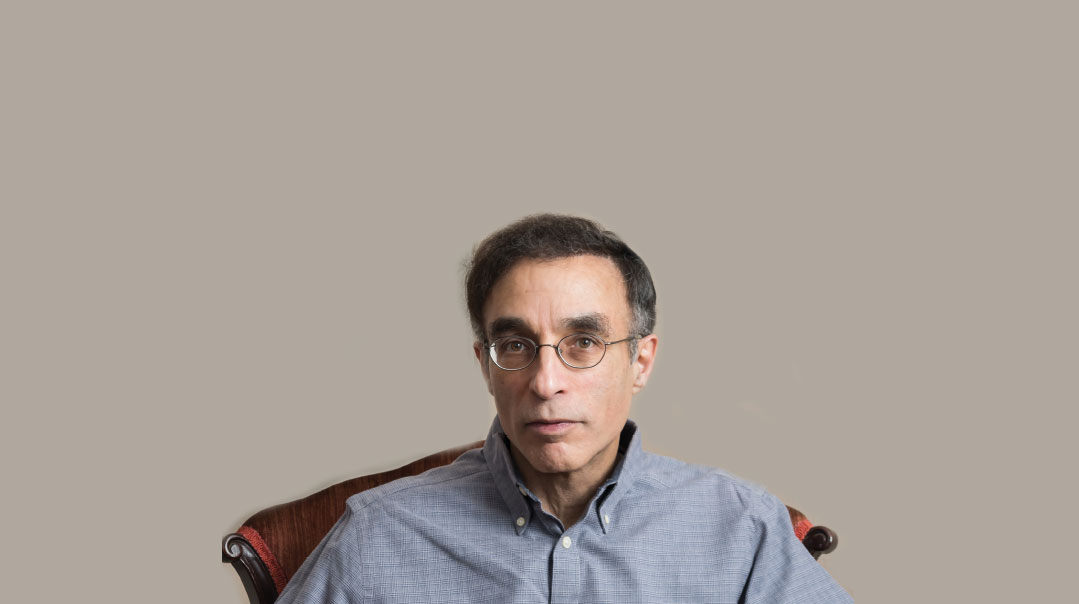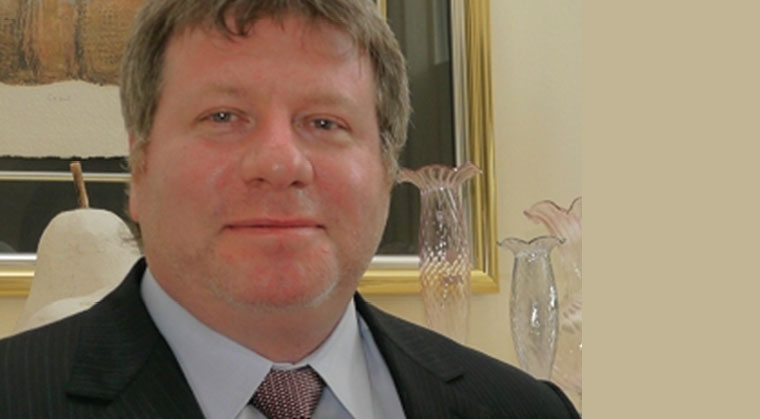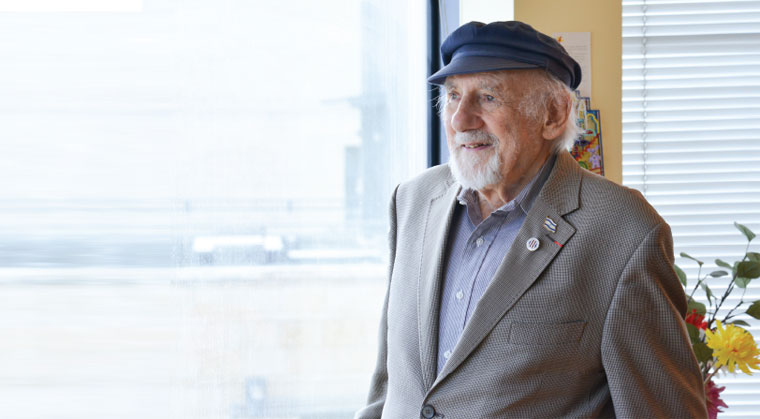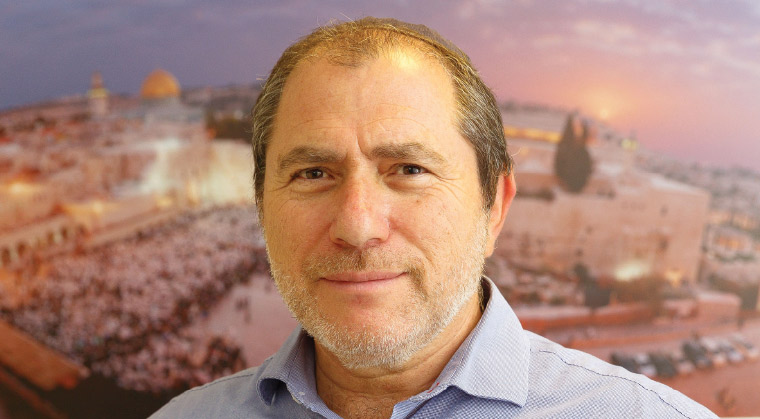Catching Up with Rav Yochanan Zweig

"Being an Orthodox Jew is not a burden. It’s a privilege and it gives a person a meaningful and fulfilling life”
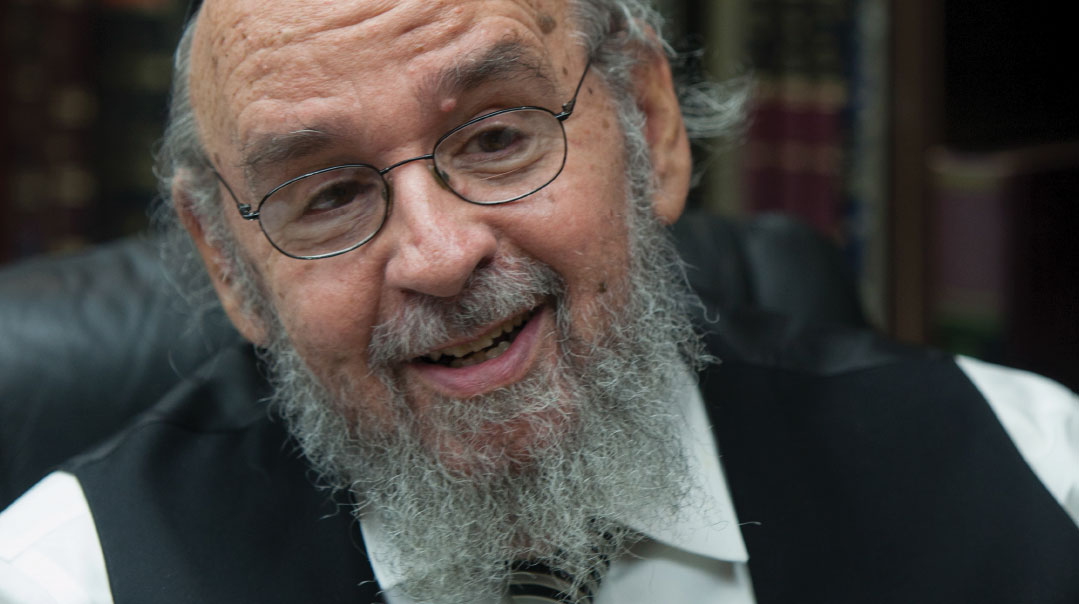
Flash Back
Listen carefully to Rav Yochanan Zweig’s parshah shiurim, year after year, on the intricacies and nuances of the Torah’s wording. You will never hear the same answers twice, even if his questions bear a ring of familiarity.
“I like to say that they’re all brand-new shiurim, even though they’re based on questions that I’ve worked on for years,” says Rav Zweig, rosh yeshivah at Miami Beach’s Talmudic University, the institution he established 45 years ago.
Even as he nears the age of “im b’gevuros,” Rav Zweig maintains the originality and creativity that serves as his drawing card for the 15 shiurim he still gives each week.
Just five years ago (“Early Riser,” Issue #538), we featured Rav Zweig on our cover to coincide with Talmudic University’s 40th anniversary, highlighting his four decades in building “the Yeshivah” — as it’s still called in Miami Beach — into an integrated chinuch system from preschool to kollel. That’s all in addition to the impact he has made in a city that has become home to one of the fastest growing and most stable baalei teshuvah communities in America.
Rav Zweig, born in Philadelphia, is a product of Ner Israel, where he was a talmid muvhak of both Rav Yaakov Yitzchak Ruderman ztz”l and Rav Yaakov Weinberg ztz”l. His main focus as a rosh yeshivah has always been to create an environment where the bochurim entrusted to his command can, as he puts it, “do all the things normal boys do and still achieve their own personal greatness.”
Progress Report
Five years later, on my recent visit in mid-November, preparations were in full force for the yeshivah’s 45th anniversary celebration, but Rav Zweig wanted to make note of a personal milestone.
“By the way, today is my 56th wedding anniversary,” he said, shortly after I sat down with him.
Which made my next question very easy: “What is the secret of success for a long and successful marriage?”
“The secret of a good marriage is that each one puts the other at the center of their world,” Rav Zweig said. “I appreciate how much I can constantly learn from my wife and how devoted one person is capable of being to another person.”
If his wife, Rebbetzin Rifkah Zweig, is the center of his universe, his talmidim stand near the core.
“These are our future leaders, and we’re trying to create leaders here,” Rav Zweig says.
The rosh yeshivah and his staff of rebbeim empower young bochurim to recognize and tap into their own potential by first conversing with them and then holding staff meetings to discuss ways of nurturing the boys’ development.
“We’re not looking to fit anyone into a mold,” Rav Zweig says. “They can become great talmidei chachamim, great builders of Torah or institutions of chesed, and be committed to that, or great at articulating the Torah position to the world. We’re looking to bring out the greatness at whatever they do.”
Feeder System
Just as the new school year got underway, the yeshivah relocated the entire boy’s elementary school to a new campus it acquired at the site of a former charter school in North Miami, making room for expansion and modernization of the original campus and the addition of a new sixth grade for girls. Overall enrollment in preschool through high school has topped 700, in addition to the existing Miami Beach yeshivah campus and its thriving beis medrash and kollel.
The yeshivah has also embarked on a multimillion-dollar expansion of the Miami Beach campus, which was once home to a Howard Johnson’s motor hotel and ice cream parlor.
A new five-story building will house a brand-new and expanded beis medrash, community shul with an ezras nashim, new classrooms and library, a state of the art kitchen and dining room, and an indoor gym that will double as an affordable simchah hall — a dire need in South Florida. And none of this would have been possible had it not been for Rav and Rebbetzin Zweig’s passion for kiruv, as he relates in the following story (facing page).
Yaakov’s Deception Was Deceptive
As noted earlier, part of Rav Zweig’s greatness in Torah is his ability to “listen to what the Torah is telling you” and extract lessons from the intricacies and nuances of pesukim.
The parshiyos we read at this time of year dwell on the “nation-building” of our forefathers. One ongoing theme is the wiles Yaakov Avinu employed to obtain his righteous father’s blessings and, eventually, outwit his wicked father-in-law, Lavan. On the surface it may seem as if his techniques were uniform the whole way through, but Rav Zweig explains how different they really were.
In parshas Vayeitzei, Yaakov meets his bashert, Rochel Imeinu, at the well. She warns him that her father is a master manipulator.
“Yaakov Avinu tells her, ‘Don’t worry, I can handle your father,’ ” Rav Zweig explains. “Then, as you get further into the story, on the face of it, it looks like her father out-manipulated Yaakov.”
We only see how Yaakov actually totally out-manipulated Lavan in the pesukim after Yaakov receives G-d’s command to pack up his belongings and return to Eretz Yisrael.
“Yaakov didn’t want to take them back until they could break their connection to Lavan,” Rav Zweig explains. “Lavan still felt like he was the father and grandfather of the family, and he wanted to be in charge. So Yaakov takes his wives out to the field and starts talking to them, and they admit how their father treated them like captives and chattel and kept the dowry for himself that he was supposed to give them.”
It was through their own admission that Yaakov was able to break Lavan’s grip on them.
“It was our gain,” Rav Zweig says. “We wouldn’t be Klal Yisrael if Lavan had remained the titular head of Klal Yisrael.”
Contrast that with how Yaakov “fooled” his father.
“The pasuk says ‘Hakol kol Yaakov.’ Eisav, on the other hand, talks tough. Yaakov is already disguising himself physically. He’s not smart enough to figure out that he should imitate Eisav’s talk? Why didn’t he do that too?” Rav Zweig asks.
He answers: “This was the difference. Yaakov just created a 50-50 scenario for his father. He wanted it to be his father’s decision to give him the brachos, because otherwise they really wouldn’t have belonged to him. If you read the pesukim well, you will recognize that he always gave his father the option. He didn’t manipulate him.”
Never Say Never
Many years ago, a young couple began attending Rav Zweig’s shiurim on Jewish marriage. The man descended from the mekubal Rav Shlomo Alkabetz, mechaber of Lecha Dodi. His wife came from the family of Rav Levi Yitzchak of Berditchev.
Both were secular, and adamant about it, especially the wife.
“The first time she walked in, she told me, ‘I’m not listening to anything from rabbis,’ ” said Rav Zweig.
Eating is another matter entirely, so as time went on, the couple became frequent guests at Rav Zweig’s Shabbos table. That’s what ended up turning the tables for them.
“Even her husband once told me, ‘Rabbi, don’t think the classes were mekarev me — it was the cholent,’ ” Rav Zweig recalls. “It took me a little time to understand what he was saying.”
Apparently, the couple imbibed by example.
“People want to change their lives, but it has to be something that’s relevant to their lives,” Rav Zweig said. “When you come to somebody’s house, and you see the way a couple treats each other and how the kids respect their parents — that’s exactly what he saw. That’s what they wanted for themselves and that’s how they got to understand the relevance of Torah.”
Today, the couple is fully observant. Their son, who sported spiked hair at his bar mitzvah, is now learning in Yeshivas Mir in Jerusalem. This family was one of the first to push for the new expansion and deposited the initial $1 million in a trust fund to help kick off the yeshivah’s dream of creating a space worthy of the Torah and hashkafah that is taught within.
“That’s what kiruv is all about,” Rav Zweig continues. “Kiruv is about knowing that you are improving the quality of a person’s life. Being an Orthodox Jew is not a burden. It’s a privilege and it gives a person a meaningful and fulfilling life.”
(Originally featured in Mishpacha, Issue 788)
Oops! We could not locate your form.







